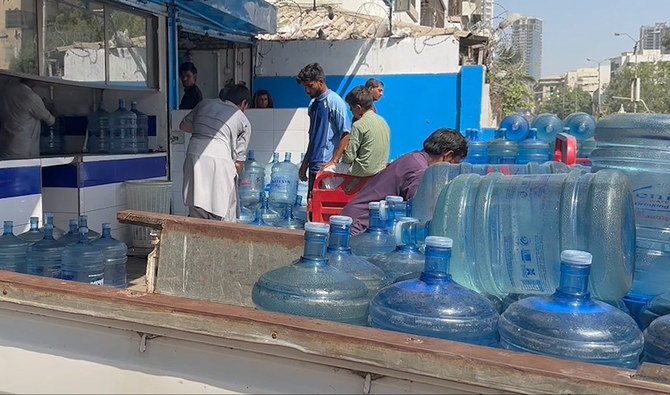Nearly half of Karachi’s population is compelled to buy water from various sources due to a significant 50% gap between the city’s water supply and demand, as revealed during a Sindh Assembly session on Wednesday. Sindh Local Government Minister Saeed Ghani highlighted the severe water crisis, while also sharing the Pakistan Peoples’ Party government’s planned initiatives to mitigate the situation.
Responding to a call attention notice by Muttahida Qaumi Movement-P (MQM-P) member Rehan Akram, Ghani provided data and statistics that painted a stark picture of the water supply challenges in Karachi.
The minister stressed the importance of the city’s “six legal hydrants,” which are crucial in preventing an even greater water crisis. Without these hydrants, he warned, many areas would experience severe water shortages.
Akram, representing Karachi’s Central constituency (PS-121), which has faced a severe water supply crisis for several months, pointed out the paradox of hydrants operating in the same affected areas without any supply issues.
Ghani explained that these six legal water hydrants operate under the directives of the apex court, and shutting them down would leave several Karachi neighborhoods dry. He also mentioned that the Sindh government is investing in the annual development program to restore water supply from the Hub Dam canal, with completion expected within the next 12 months. This project aims to provide an additional 150 million gallons of water per day to the city.
The minister noted that Karachi currently receives 70 million gallons per day (MGD) from the Hub Dam, against a quota of 100 MGD. The restoration of the Hub Dam canal is being carried out through a public-private partnership, expected to improve water supply to the affected areas once completed.
Additionally, Sindh Education Minister Syed Sardar Ali Shah informed the assembly that 14,000 primary schools across the province lack basic water facilities, with 38 of these schools in Karachi operating without washrooms. He also discussed the challenges faced in electrifying schools in rural Sindh with solar power, citing issues with theft of installed solar panels.
Shah emphasized the need for a collaborative effort to address these issues, highlighting ongoing projects aimed at equipping all schools with water supply, washrooms, and boundary walls. He mentioned the introduction of technology-based solutions to ensure regular classes, teacher attendance, and performance monitoring, set to launch with the new academic year.
The session also saw the passing of the Gorakh Hills Development Authority (Amendment) Act, appointing the tourism minister as the head of the authority. The session was adjourned until Friday, when Chief Minister Syed Murad Ali Shah will present the budget for the next fiscal year.

